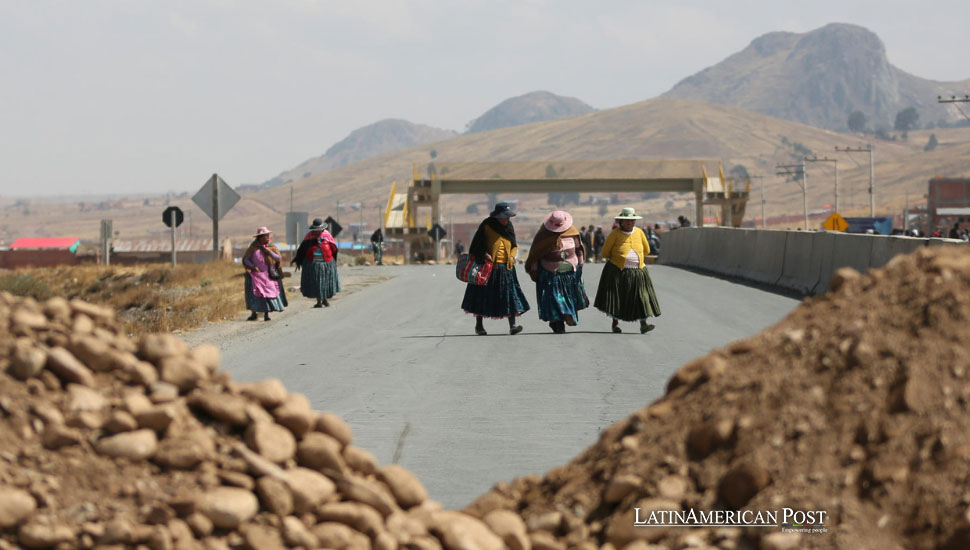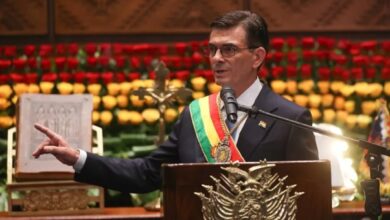Indigenous Communities in Bolivia Threatened by Fires and Forced Displacement

Indigenous communities in Bolivia’s lowlands face extinction due to forest fires and forced displacement. As flames devastate the Amazon, similar crises unfold across Latin America, threatening the survival of ancient cultures and natural ecosystems.
The Destruction of Indigenous Lands in Bolivia
Bolivia’s indigenous communities in the lowland regions of Santa Cruz, Beni, and Pando are on the brink of disappearing due to relentless forest fires and forced displacement. The Ayoreo, Tsimane, Sirionó, and Ese Eja people, among others, find themselves trapped in a fight for survival as their lands burn and become uninhabitable.
According to Miguel Vargas, director of the Centro de Estudios Jurídicos y Sociales (Cejis), the situation has grown dire. In just five years, fire has ravaged 45 indigenous territories out of the 58 officially recognized by the Bolivian government, with seven suffering severe damage. Since the catastrophic fires of 2019, when over 5.3 million hectares were destroyed, the situation has only worsened. The Bolivian government estimates flames have consumed 3.8 million hectares of forest this year.
The fires destroy homes and sacred lands and contaminate water sources with ash, making them unsafe for human consumption. Entire communities are being forced to abandon their ancestral lands and move to urban areas, where their traditions and ways of life begin to fade. Vargas warns that smaller indigenous groups, already facing demographic challenges, are particularly vulnerable to what he calls an impending ethnocide.
The underlying cause of these fires is the practice of chaqueos, or controlled burns, which have spiraled out of control due to lax regulation. This agricultural technique, intended to clear land for farming and livestock, has spread unchecked into the forests, further exacerbating the crisis. Indigenous groups that rely on hunting and gathering are witnessing their forests transformed into barren, scorched earth, their livelihoods disappearing along with the trees.
Forest Fires Devastating the Amazon and Beyond
Bolivia’s fire crisis is not an isolated event. Across Latin America, the Amazon rainforest and other ecosystems are experiencing devastating wildfires fueled by illegal land clearing, deforestation, and increasingly severe climate change. According to the Brazilian Institute for Space Research (INPE), South America saw over 350,000 forest fires between January and September 2023, the highest number in 15 years.
Brazil, home to most of the Amazon rainforest, faces a similar situation. The fires that rage there threaten not only Brazil’s indigenous communities but also the health of the entire planet. The Amazon is crucial in absorbing carbon dioxide and regulating the global climate. As fires spread, vast swaths of the forest are lost, releasing carbon into the atmosphere and accelerating global warming.
The Asháninka and Awajún indigenous groups in Peru have been severely affected by forest fires in the Ucayali and Loreto regions. These fires, often caused by illegal logging and mining, have not only destroyed forests but have also contaminated rivers with toxic chemicals, further endangering indigenous communities that rely on these water sources for drinking, fishing, and farming.
In Colombia, deforestation and illegal land clearing in the Amazon have reached record levels, contributing to rising forest fires. The Tikuna and Huitoto people, who live deep in the Amazon, see their ancestral lands reduced to ash. Like their counterparts in Bolivia, they face forced displacement and the loss of their cultural heritage as their forests burn.
Latin America is witnessing a pattern of destruction that extends beyond national borders. Forest fires are not just an environmental issue; they are a humanitarian crisis that threatens to wipe out entire cultures and ecosystems.
Cultural Extinction
As indigenous communities in Bolivia and across Latin America are forced to flee their homes, their cultures face extinction. Displacement disrupts traditional ways of life, from governance structures to subsistence practices. Once indigenous peoples are removed from their ancestral lands, their ability to pass down cultural knowledge, languages, and spiritual practices to future generations is severely compromised.
In Bolivia, many indigenous groups have relocated to urban centers like Santa Cruz and La Paz, where they struggle to adapt to a way of life vastly different from the one they have known for generations. The Tsimane and Sirionó peoples, traditionally reliant on hunting, fishing, and agriculture, find it increasingly difficult to maintain their traditional ways in city environments. As they lose access to their forests, they also lose the ability to sustain their cultural practices.
This loss of culture is not unique to Bolivia. In Brazil, the Kayapo and Yanomami peoples have faced similar struggles as deforestation and illegal mining force them from their lands. For these groups, the forest is not just a place to live—it is the foundation of their identity. When the forest is gone, so too is their way of life.
In Ecuador, the Waorani people have been displaced by fires and oil extraction, causing a breakdown in their traditional governance structures. Without their land, they can no longer practice the customs that have sustained their community for centuries. Forced migration to urban areas has eroded their language, spiritual practices, and social cohesion.
The cultural toll of displacement is devastating, and as more indigenous groups are uprooted, the risk of cultural extinction grows. The situation in Bolivia is a stark reminder of the urgent need to protect not only the environment but also the cultural heritage of the indigenous peoples who have stewarded these lands for millennia.
Solutions for a Region in Peril
The fires in Bolivia and other parts of Latin America highlight the urgent need for coordinated regional efforts to address both environmental degradation and the displacement of indigenous communities. While some countries, like Brazil, have implemented policies to reduce deforestation, enforcement remains inconsistent, and illegal activities continue to fuel forest fires.
Bolivia’s government has declared a national emergency in response to the fires and temporarily banned all controlled burns. However, this measure alone is not enough to address the scale of the crisis. Miguel Vargas of Cejis argues that long-term solutions must focus on strengthening forest management practices, improving fire prevention, and offering more significant support to Indigenous communities.
One potential solution is the creation of community-managed forests, where indigenous groups are given the legal authority and resources to protect and manage their lands. This model has been successful in countries like Guatemala, where the Maya Biosphere Reserve has seen a dramatic reduction in deforestation rates thanks to the involvement of local communities in conservation efforts.
Regional cooperation is also critical. The Amazon spans multiple countries, and the fires do not respect national borders. A pan-Amazonian agreement that brings together countries like Bolivia, Brazil, Peru, and Colombia to combat illegal logging, mining, and land clearing could help reduce the number of fires and protect Indigenous territories. This would require governments to commit to enforcing environmental laws and investing in sustainable development projects that benefit local communities.
Lastly, the international community must provide financial and technical assistance to Latin American countries dealing with the fallout from forest fires. Global environmental organizations and foreign governments have a role in supporting reforestation efforts, fire prevention programs, and the preservation of indigenous cultures.
Without immediate action, the fires will continue to ravage Latin America’s forests, pushing indigenous communities closer to extinction. The time to act is before the cultural and environmental losses become irreversible.
Also read: Elusive Predator Unveiled in Bolivia’s Dense Forests
The fires consuming Bolivia’s forests are not just a national issue but part of a broader crisis affecting Latin America. Indigenous communities, long the stewards of these lands, are being driven from their homes, and their cultures are at risk of disappearing forever. To save the environment and the rich cultural heritage of Latin America’s indigenous peoples, urgent action is needed on a regional and global scale. The future of the Amazon and the people who call it home depends on it.




